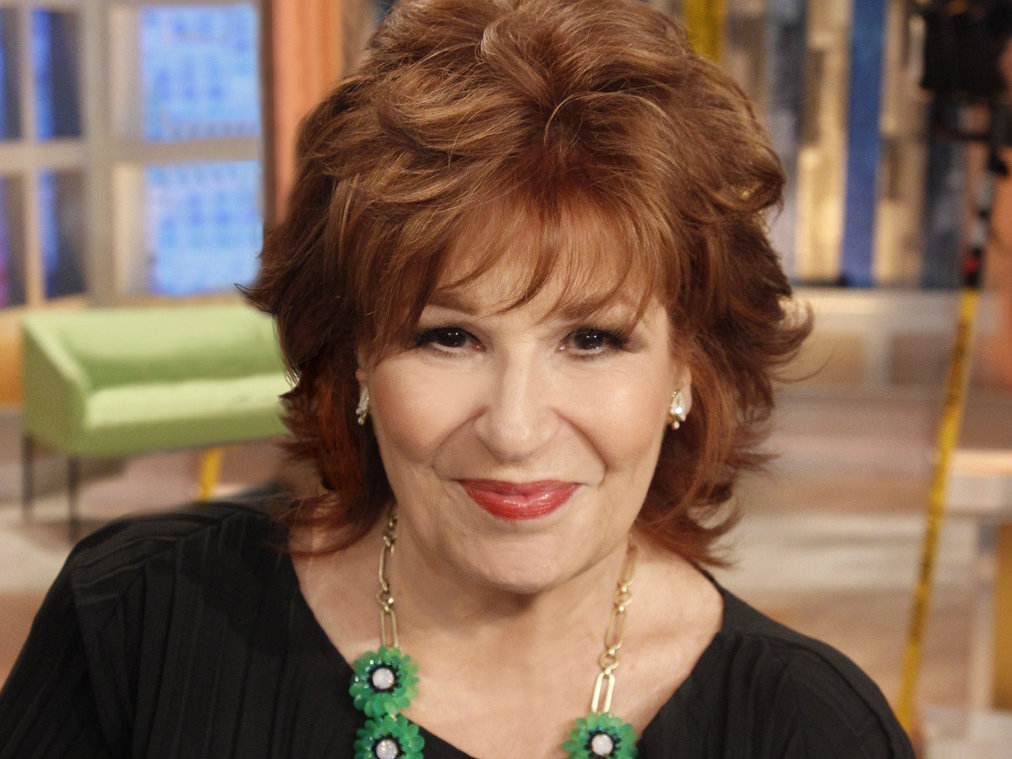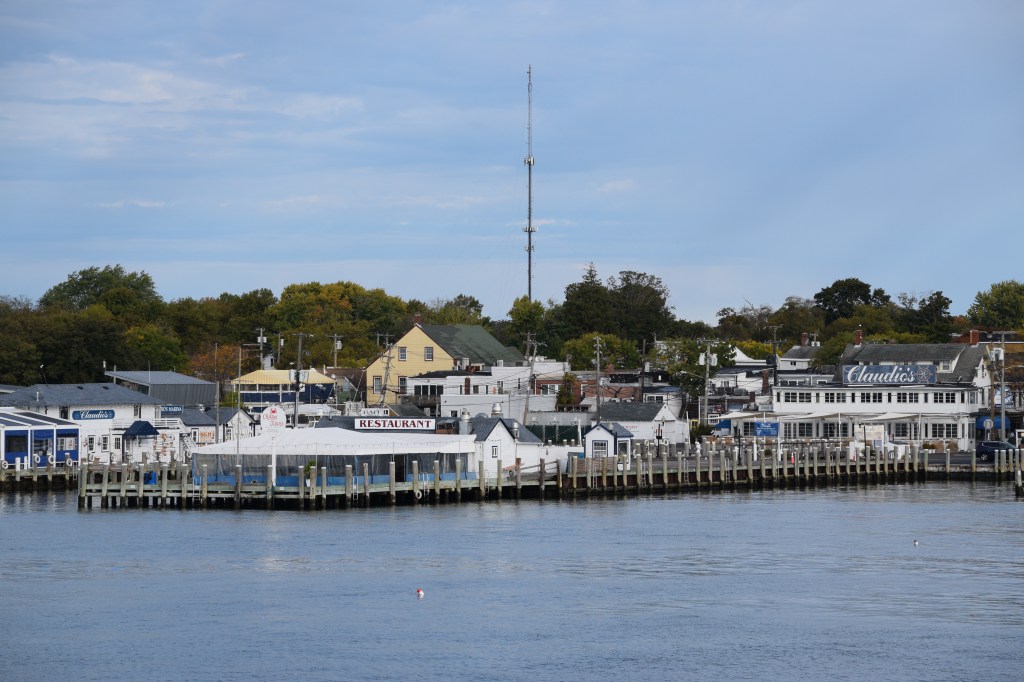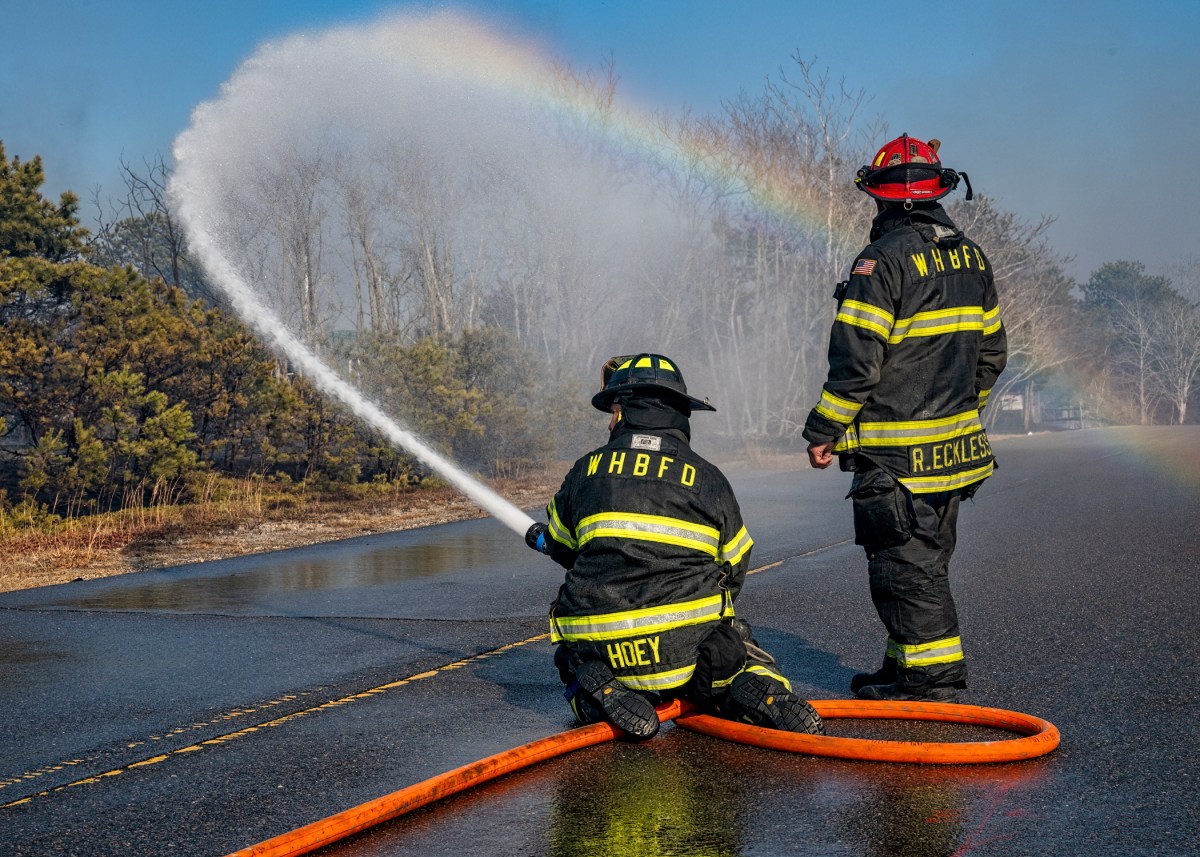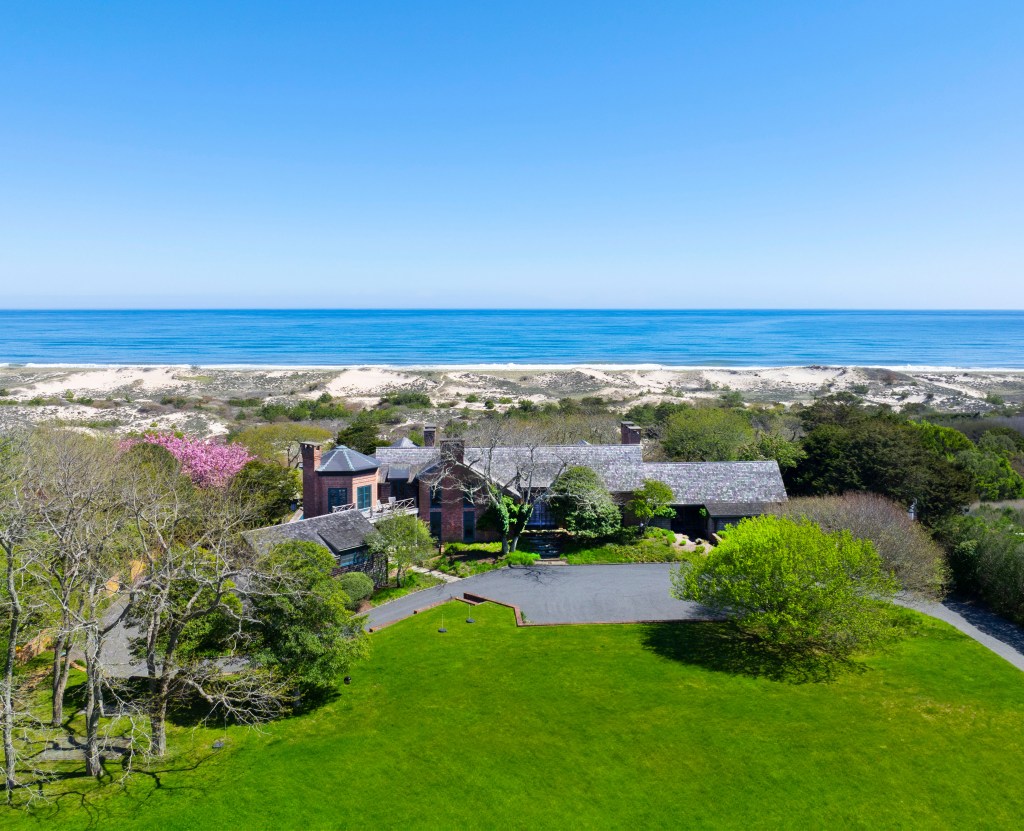Out East End: Joy Behar Talks Coming Out for the Holidays

”It’s the Most Wonderful Time of the Year” … or is it? While Andy Williams’ voice booms loud and cheery through that familiar holiday carol, we all know that amidst the shopping, tree trimming and holiday parties (if there are any with these variants), this time of the year can be a mixed bag of emotions — anxiety, sadness and expectations — especially if you aren’t “out” to your family and friends and you have that desire to be closer and to share your life with loved ones.
Right before this past Thanksgiving, Joy Behar made waves (it happens) and was trending on social media after she said on The View that closeted LGBTQ+ people should use the occasion to “just come out” to their families.
“Everybody out there, come out to your family this Thanksgiving,” Behar said, adding, “Just come out … see what happens.” Though moderator Whoopi Goldberg acted confused in the moment, asking, “What do you mean? Come through the door?” we all know what Behar meant. She then reiterated and elaborated on her comments. “No, come out gay. If you’re gay, come out. Be yourself. I’m old enough now. I know that life is short,” she said.
“Come out and be yourself. Don’t let anybody tell you what you have to be in this life.” The audience applauded her.
But the backlash after the show was fast and furious. Twitter lit up with tweets saying, “It’s not a joke,” and that Behar “should be ashamed,” and that her comments were “incredibly dangerous.” One Twitter user said, “Many of our fellow community members face real threats to their lives if they come out to family. If you haven’t been in this situation, don’t give us advice.”
Others agreed with Behar, saying, “It’s your time to accept yourselves. Be proud, if your families don’t accept you, they are the ones who should be ashamed.”
As a journalist, I feel like I have to weigh in on this one, not only because it is a hot topic and timely, but because I have known Joy Behar and have considered her a friend for over 30 years. She has been, and continues to be, a fearless and tireless LGBTQ+ advocate. I also know that she shoots from the hip sometimes, however well intentioned. Having a platform on television is both a responsibility and a liability in a way, as you are always a target for misinterpretation, no matter what you say. It comes with the territory.
Behar meant well in the moment. I can say that with authority. But I will also say that when I read about the backlash over this episode on The View and what she said, to “just come out,” I winced. Why? Horrific stories of violence towards LGBTQ+ members (the most recent one a Long Island man apprehended for hate crimes and threats of violence targeting the LGBTQ+ community) abound. And there is the personal prison, that many closeted people put themselves in — for all kinds of reasons and fears, whether real or imagined.
I am one of those people who justified and perpetuated that personal prison sentence.
For many of my adult (and good) years, I was very closeted. I get the deep fear and the reality of how it plays with your head. I remember literally running behind trees back in the day at The Swamp in Wainscott, because I recognized someone at a tea dance who I had worked with in television, and I was afraid that she would see me there. And then what? Know my shameful, terrible truth? Tell my family? She was there too. No matter. I was petrified.
I used to introduce my (then) longtime partner as my cousin. The staff in our apartment building in NYC thought we were sisters (or at least they pretended to go along with the story. … We did look like we could be sisters, how convenient). Crazy now to think that I felt so guarded about something that most people take for granted (“Yes, this is my partner”), but at the time, you couldn’t talk me out of that hide and seek game.
When I came out to Behar (circa 2005), I literally threatened her over a lunch at Café Luxembourg on the Upper West Side. In a semi Sopranos moment I mumbled forcefully something like, “I don’t care who you are, or if you are on TV. If you tell anyone, anyone — especially Meredith Vieira or anyone else I work with — I will never, ever speak to you again. Do. Not. Cross Me.”
I’m surprised we stayed friends after that, but we did. And she kept my secret until it wasn’t one. For years I was her opening act for her comedy shows. We spent a lot of time talking in long limo rides to gigs in Atlantic City and theaters around the country. Behar encouraged me to buy a house in the Hamptons. It was getting difficult to socialize and not disclose that I had a significant other in my life. But it was not easy for me at the time to share that simple fact with just anyone. It took time to truly come out. A lot of time. After The View, when I was a producer (for eight years) at the Today show, I never talked about my personal life and only chose to disclose it in 2013, when my daughter was born. When she came out, I came out. I couldn’t and wouldn’t hide that to the world or to her. How shameful.
The point is, we all have our journeys and our goals — so how do we deal and how do we get there? I decided to place two calls — one to Joy Behar for some comments and the second to a counselor at the Edie Windsor Healthcare Center, Maureen Coley, who has been a licensed therapist for over almost 30 years — to talk about the coming out process and how the holidays ramp things up. Here are excerpts from those conversations:
[Interview with Joy Behar]
Joy, you took a lot of heat. Did you expect that reaction?
Behar: I meant no harm. …When I said “come out and see what happens” I was trying to encourage people, I wasn’t telling them what to do … people have free choice in this country. People have to decide for themselves. Every situation is different. But I think of Harvey Milk and what he said, in a quote that I often refer to when discussing this topic.
[Here is the Harvey Milk quote she sent to me]: “Every gay person must come out. As difficult as it is, you must tell your immediate family. You must tell your relatives. You must tell your friends, if indeed they are your friends. You must tell the people you work with. You must tell the people in the stores you shop in. Once they realize that we are indeed their children, that we are indeed everywhere, every myth, every lie, every innuendo, will be destroyed once and for all. And once you do, you will feel so much better.”
Behar: It pains me to read this quote, it makes me cry. To think that gay kids can’t be their authentic selves. I get that there are tough families. I don’t want anyone to be in an abusive situation. … I accept the part that I shouldn’t be speaking for the gay community, as I’m not one of them. I’m on the outside. But I also think I have the power to help — like if I speak up for Jews, I’m not Jewish but I can try to be helpful. That was my intention, to be helpful, to encourage people to be their authentic selves.
[Interview with Maureen Coley, licensed clinical social worker]
How do you counsel someone who is thinking of coming out to their family?
Coley: It’s very different if you’re a college student coming home who is dependent on parents for financial support or a place to live, that’s a real serious concern and maybe if you know your parents aren’t going to accept that, it may be better to bide your time and wait. If you get the sense that they will be accepting but it might be uncomfortable, that’s a different sort of risk level — different than a grown adult who is independent and self sufficient, who wants to be seen and heard. Personal circumstances are very important — it’s not just one monolithic experience of coming out … and it has to be done on your own time frame.
What are the upsides and downsides of coming out?
Coley: Certainly the upsides are validation of yourself. It can be extremely empowering to not feel as if you are harboring a secret which is usually stemmed in some kind of shame, so by letting go of that shame for yourself and being able to be more fully authentic in who you are — that’s very self empowering. Family relationships are important and if you’re afraid you’re going to lose that family relationship or if you think it will be altered or damaged, you have to be willing to be able to risk that.
Are the holidays a good (or bad) time to come out?
Coley: You have to think about what are you looking to get here and what are you risking. … Are you looking to make a big announcement or looking to have a quiet conversation with your mother individually? The truth is, most coming out is not a big huge announcement; it often is a one-on-one conversation with a person you love and say, “This is who I love, and I want to share it with you.”
Any advice on how to frame it or how to say?
Coley: It all boils down to the relationship you have with that person and what you want them to know about you —and are you in a place where you feel safe and secure to share that deeper part of yourself.
What is the biggest concern you see, and what do you advise?
Coley: The idea that you have to worry about being ostracized for just being who you are is a big weight that people can carry. I think it’s always important to help people understand what that weight can do to you that you don’t even realize, holding the secret, keeping part of yourself away from the people that you love is keeping you distant and
separated.
If you are harboring what feels like a secret that is filled with shame and that is extremely destructive to your own psyche, it’s important to explore and investigate yourself and where you are at in your life so you know where you are going.
If I’m counseling someone, I help them think through what is it they are really looking for — you may not get that, you may get better — and are you willing to do it anyway to be more truthful to yourself. While there are risks to coming out, there are also risks to not coming out … in the end you can’t control it.



